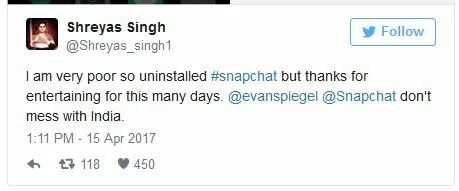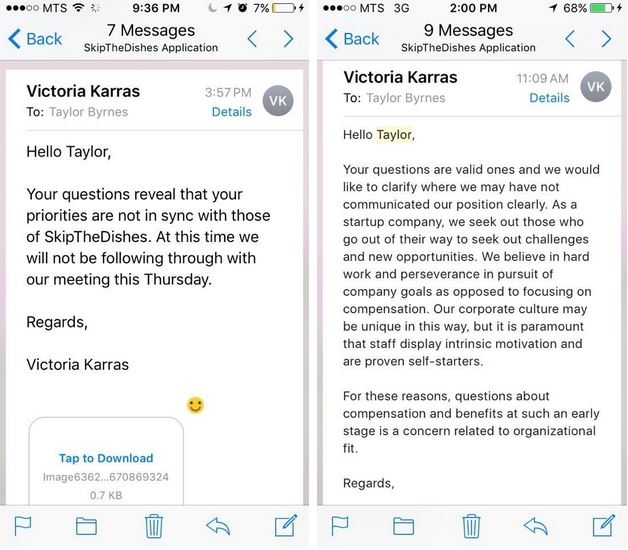Adidas Apologizes for Congratulatory Message
Adidas may need a better review process. After the Boston Marathon, the company sent a congratulatory email about "surviving" the marathon, not thinking about the terrorist attack four years ago. During that event, two bombs killed three people and left several hundred injured.
The subject line to the marathoners read, "Congrats, you survived the Boston Marathon!"
Outrage was swift. People immediately saw that Adidas hadn't posted this intentionally but had failed to consider the connection and potential reaction.
The apology also came quickly and did the job. Admitting that "no thought was given to the insensitive email subject line," the company didn't make excuses or apologize "if we offended anyone"; they said plainly that it was insensitive.
Discussion:
- Are people too sensitive, or was this a real gaffe?
- How does a mistake like this happen?
- What makes this an effective apology?
Choate Apologizes for Sexual Abuse
Private school Choate Rosemary Hall, in Wallingford, CT, has uncovered sexual abuse by 12 faculty members. According to a report commissioned by the board of trustees, abuse going back to the 1960s was mishandled:
"Sexual misconduct matters were handled internally and quietly. Even when a teacher was terminated or resigned in the middle of the school year because he or she had engaged in sexual misconduct with a student, the rest of the faculty was told little and sometimes nothing about the teacher's departure and, when told, was cautioned to say nothing about the situation if asked."
Some faculty were given recommendations to transfer to other schools.
In a "Message to the Choate Rosemary Hall Community," posted on the website, the board chair and headmaster review the facts, thank the victims for coming forward, apologize, and promise action. The school hired Rape, Abuse & Incest National Network (RAINN) to review its policies and make recommendations. One conclusion in the letter follows:
RAINN has noted the strength of Choate's current confidentiality, amnesty, retaliation, and mandatory reporting policies; progressive training and education for students; and faculty and staff who are caring, empathetic, and supportive while preventing and responding to sexual misconduct on campus. Their recommendations call for continued codification of policies and procedures for reporting and investigating incidents, further review and refinement of adjudication processes, and additional training for faculty and staff who respond to incidents of sexual misconduct. We believe a commitment to constantly improving standards will provide more understanding and protection for our students.
Discussion:
- I'm skeptical reading the excerpt above. So, your policies are great? You just need to follow them? And of course, you need to do training, which everyone seems to say in these situation. Read the entire letter and form your own opinion. Am I too harsh?
- Should Choate have this letter prominently on its website? I followed a link from The New York Times, but I don't see any reference to the statement. What are the arguments for and against posted something, say, on the home page?
Facebook Responds to Video of a Murder
 Facebook is on the defense after a video of a murder was posted to the site. Steven Stephens filmed himself shooting a 74-year-old man for no reason except a dispute with his girlfriend, and he said it was his fourteenth killing. Stephens shot himself as police where closing in after a tip from McDonald's drive-thru employees.
Facebook is on the defense after a video of a murder was posted to the site. Steven Stephens filmed himself shooting a 74-year-old man for no reason except a dispute with his girlfriend, and he said it was his fourteenth killing. Stephens shot himself as police where closing in after a tip from McDonald's drive-thru employees.
Facebook is criticized for taking more than two hours to remove the video. CEO Mark Zuckerberg extended his sympathy to the victim's family: "Our hearts go out to the family and friends of Robert Godwin Sr., and we have a lot of work - and we will keep doing all we can to prevent tragedies like this from happening."
On its website, the company posted an article, "Community Standards and Reporting," about the incident and included a message from Zuckerberg. "Mark Zuckerberg, speaking at F8, Facebook's developer conference said today, 'We have a lot more to do here. We're reminded of this this week by the tragedy in Cleveland. Our hearts go out to the family and friends of Robert Godwin Sr. We have a lot of work and we will keep doing all we can to prevent tragedies like this from happening.'" The article also listed a timeline of events:
Timeline of Events
11:09AM PDT - First video, of intent to murder, uploaded. Not reported to Facebook.
11:11AM PDT - Second video, of shooting, uploaded.
11:22AM PDT - Suspect confesses to murder while using Live, is live for 5 minutes.
11:27AM PDT - Live ends, and Live video is first reported shortly after.
12:59PM PDT - Video of shooting is first reported.
1:22PM PDT - Suspect's account disabled; all videos no longer visible to public.
Here's Facebook's commitment to improving its process:
In addition to improving our reporting flows, we are constantly exploring ways that new technologies can help us make sure Facebook is a safe environment. Artificial intelligence, for example, plays an important part in this work, helping us prevent the videos from being reshared in their entirety. (People are still able to share portions of the videos in order to condemn them or for public awareness, as many news outlets are doing in reporting the story online and on television). We are also working on improving our review processes. Currently, thousands of people around the world review the millions of items that are reported to us every week in more than 40 languages. We prioritize reports with serious safety implications for our community, and are working on making that review process go even faster.
Keeping our global community safe is an important part of our mission. We are grateful to everyone who reported these videos and other offensive content to us, and to those who are helping us keep Facebook safe every day.
Discussion:
- In the post, Facebook says it disabled the man's account 23 minutes after the video was reported. What do you think of that time frame?
- According to the post, the first video, in which Stephen says he plans to kill, wasn't reported until 1 hour and 50 minutes after it was posted. Why do you think it took so long?
Snapchat Is 'Only for Rich People'?
In 2015, did Snapchat founder Evan Spiegel say the app is "only for rich people" and that he didn't "want to expand into poor countries like India and Spain"? That's the claim by a former employee who is suing Snap Inc. for wrongful termination. Anthony Pompliano alleges he was fired after accusing the senior leadership team of inflating app metrics before the IPO.
Pompliano says the company falsely advertised the number of daily active users (DAU), violated a non-solicitation and non-compete agreement, and exaggerated growth and retention data. Pompliano claims that Speigel's response about poor countries came when he suggested going into international markets to expand the user base.
A representative for Snap responded:
"This is ridiculous. Obviously, Snapchat is for everyone! It's available worldwide to download for free. Those words were written by a disgruntled former employee. We are grateful for our Snapchat community in India and around the world."
Snap doesn't deny data discrepancies, but says they aren't as significant as Pompliano claims. Pompliano contends that the discrepancies indicate "a wide-spread, systemic failure in Snapchat's internal controls over its user data." A Fortune article warns that questions about user registrations and engagement could be important to investors, who bought stock in what Fortune calls a "giant IPO" that "just proved we're in a tech bubble."
Discussion:
- Let's assume Spiegel made those comments. Do you find them offensive, taken out of context, or something else?
- How well did Snap handle the response?
- How serious are Pompliano's claims? What effect, if any, do you think they might have on investors?
Sean Spicer Makes a Mistake
Another Hitler analogy gone awry? How is it possible? During a briefing with reporters, White House Press Secretary Sean Spicer compared the use of chemicals by Hitler and President Bashar al-Assad of Syria:
"We didn't use chemical weapons in World War II," Mr. Spicer said. "You know, you had someone as despicable as Hitler who didn't even sink to using chemical weapons."
When a reporter questioned the statement, Spicer may have made things worse:
"I think when you come to sarin gas, he was not using the gas on his own people the same way that Assad is doing."
He then said people came into "Holocaust centers."
He tried to fix it: "I was trying to draw a distinction of the tactic of using airplanes to drop chemical weapons on population centers. Any attack on innocent people is reprehensible and inexcusable, but that didn't do it." Finally, he gave a fuller apology during an interview, although The New York Times calls it "contrite."
Discussion:
- Where did Spicer go wrong? Do you find his comments offensive? Why or why not?
- What's your assessment of his apology in the NBC News interview? Do you find it "contrite," as The New York Times says?
Barclays Chief Tries to Find Whistleblower
 The Guardian used the word "hunt" to describe Jes Staley's search for an employee who tried to communicate anonymously with the board of directors to file a complaint about another employee. As the chief executive of Barclays, Staley tried to track down the author of the two letters and received help from internal security employees and a U.S. law enforcement agency.
The Guardian used the word "hunt" to describe Jes Staley's search for an employee who tried to communicate anonymously with the board of directors to file a complaint about another employee. As the chief executive of Barclays, Staley tried to track down the author of the two letters and received help from internal security employees and a U.S. law enforcement agency.
In an email to employees, Staley explains his rationale for going after the whistleblower:
"One of our colleagues was the subject of an unfair personal attack sent via anonymous letters addressed to members of the Board and a senior executive of Barclays. The allegations related to personal issues from many years ago, and the intent of the correspondents in airing all of this was, in my view, to maliciously smear this person."
As a result of an internal investigation, Barclays officials said, Staley acted "honestly but mistakenly." He may, however, receive a smaller bonus. We also may learn more: three regulatory groups are investigating the matter.
Discussion:
- Read Staley's email to employees. What's your interpretation of his perspective? To what extent do you see his perspective?
- What should the board of directors do at this point?
United CEO Speaks Out
 After an insufficient apology, United CEO Oscar Munoz has changed his tune. In an interview with ABC News, Munoz said, "This first thing I think is important to say is to apologize to Dr. Dau, his family, the passengers on that flight, our customers, our employees. That is not who our family at United is. You saw us at a bad moment."
After an insufficient apology, United CEO Oscar Munoz has changed his tune. In an interview with ABC News, Munoz said, "This first thing I think is important to say is to apologize to Dr. Dau, his family, the passengers on that flight, our customers, our employees. That is not who our family at United is. You saw us at a bad moment."
Munoz also changed his view of the passenger. In a letter to employees, he seemed to blame the passenger, but in the interview, he said Dr. Dau wasn't at fault at all, although he did pause before saying so.
When asked why he didn't communicate "that shame" (he said he was "ashamed"), Munoz said he wanted to get the "facts and circumstances first." He also said his words didn't reflect what they were really feeling.
He explained that the incentive model needs to be re-evaluated because it clearly works better before people have boarded. For the future, Munoz said they will never bring a law enforcement official on a flight to remove a paying passenger again.
Discussion:
- How did Munoz do in the interview? What principles of crisis communication did he demonstrate, and where did he fall short?
- What else should Munoz have said?
- Analyze Munoz's delivery skills. How would you advise him to approach future interviews?
- Southwest and other airlines are taking full advantage of the situation. What are the potential downsides of ads like the one here?
United Drags a Man Off the Plane
I'm not sure United thought this one through; people have cell phones. The airline needed to free up four seats so their employees could to get to Louisville. Attendants offered $400 and $800 but couldn't get people to relinquish their spots. Four people on the plane were approached; three left "without incident," as The New York Times reports.
But the fourth wouldn't budge. He said, "I'm not getting off the plane. I'm a doctor; I have to see patients in the morning." The Times reports the airline's perspective:
Charlie Hobart, a United spokesman, said in a telephone interview on Monday that "we had asked several times, politely," for the man to give up his seat before force was used.
"We had a customer who refused to leave the aircraft," he said. "We have a number of customers on board that aircraft, and they want to get to their destination on time and safely, and we want to work to get them there. "Since that customer refused to leave the aircraft, we had to call" the police, and they came on board, he said.
The man was removed by force, dragged down the aisle, and eventually carried out on a stretcher. A video shows the man, somehow, back on the plane, clearly upset, saying, "I have to go home." In this video, we see that his mouth is bleeding.
United issued a short statement from CEO Oscar Munoz on Twitter. Although Munoz apologizes for "re-accommodating" passengers, no public apologies have been made to the man or other passengers as yet.
UPDATE: Munoz issued a longer statement and, as NBC News tweeted, "found new words like 'disturbed' and 'horrific event'":
"The truly horrific event that occurred on this flight has elicited many responses from all of us: outrage, anger, disappointment. I share all of those sentiments, and one above all: my deepest apologies for what happened. Like you, I continue to be disturbed by what happened on this flight and I deeply apologize to the customer forcibly removed and to all the customers aboard. No one should ever be mistreated this way."
Spokesperson Megan McCarthy also said, "We recognize that our response yesterday did not reflect the gravity of the situation," Ms. McCarthy said. "And for that we also apologize. Our focus now is looking ahead and making this right. Judging from a letter Munoz sent to his employees, he may have been supporting them, protecting them. But customers must come first in a situation like this. Meanwhile, the passenger, Dr. Dao, has hired lawyers, four senior senators wrote United a chastising letter, and the company has lost $255 million in value. What may be worse (or perhaps, all for the best) are grumblings about potential disruptors for the commercial airline industry.
Discussion:
- What leadership lessons would you like to teach United's staff? What crisis communications lessons could they learn?
- Where did the airline go wrong? Try to identify all steps in the process.
- What's your view of the response so far? Should United say more?
Wells Fargo Blames a Manager
An investigation led by Wells Fargo's board into the practices that led to thousands of false accounts blames Carrie Tolstedt, the former head of the retail division:
The root cause of sales practice failures was the distortion of the Community Bank's sales culture and performance management system, which, when combined with aggressive sales management, created pressure on employees to sell unwanted or unneeded products to customers and, in some cases, to open unauthorized accounts.
The report also says the former CEO John Stumpf was "too slow" to investigate possible issues. The report is public on Wells Fargo's website.
Tolstedt's lawyers dispute the allegations. Stumpf once referred to Tolstedt as the "best banker in America." Reuters reported:
Tolstedt was perceived by high-level employees as having the support of Stumpf, with whom it was considered best to avoid raising problems with.
"Stumpf was ultimately responsible for enterprise risk management at Wells Fargo, but was not perceived within Wells Fargo as someone who wanted to hear bad news or deal with conflict," the report said.
Duke Law School Professor James Cox told Reuters, "There's a tremendous amount of pressure from regulators to throw someone under the bus. If they don't, then Wells Fargo is going to be even more in the crosshairs."
In a statement, "Wells Fargo Statement Regarding Board Investigation into the Community Bank's Retail Sales Practices," CEO and President Tim Sloan summarized actions the bank has taken: // <![CDATA[ // <![CDATA[ // <![CDATA[ // <![CDATA[ // if this line executes, then javascript is turned on and we'll therefore remove the no-js class from the HTML tag document.documentElement.className = document.documentElement.className.replace(/(^|\s)no-js(\s|$)/, '$1$2'); // ]]> // ]]> // ]]> // ]]</p></div>
New Facebook App for Spotting Fake News
 Facebook is launching a new app for spotting what the company is calling "false news and hoaxes." In a blog post titled "A New Educational Tool Against Misinformation," the company explains the new tool:
Facebook is launching a new app for spotting what the company is calling "false news and hoaxes." In a blog post titled "A New Educational Tool Against Misinformation," the company explains the new tool:
We know people want to see accurate information on Facebook – and so do we. False news and hoaxes are harmful to our community and make the world less informed. All of us have a responsibility to curb the spread of false news.
At Facebook we have been focusing on three key areas:
- disrupting economic incentives because most false news is financially motivated;
- building new products to curb the spread of false news; and
- helping people make more informed decisions when they encounter false news.
Facebook and Google has been under pressure to address the increasing number of offensive and incorrect posts on their sites. This is Facebook's latest strategy to take responsibility and address the criticism that such sites are not doing enough.
The tool offers the following advice:
1. Be skeptical of headlines. False news stories often have catchy headlines in all caps with exclamation points. If shocking claims in the headline sound unbelievable, they probably are.
2. Look closely at the URL. A phony or look-alike URL may be a warning sign of false news. Many false news sites mimic authentic news sources by making small changes to the URL. You can go to the site and compare the URL to established sources.
3. Investigate the source. Ensure that the story is written by a source that you trust with a reputation for accuracy. If the story comes from an unfamiliar organization, check their "About" section to learn more.
4. Watch for unusual formatting. Many false news sites have misspellings or awkward layouts. Read carefully if you see these signs.
5. Consider the photos. False news stories often contain manipulated images or videos. Sometimes the photo may be authentic, but taken out of context. You can search for the photo or image to verify where it came from.
6. Inspect the dates. False news stories may contain timelines that make no sense, or event dates that have been altered.
7. Check the evidence. Check the author's sources to confirm that they are accurate. Lack of evidence or reliance on unnamed experts may indicate a false news story.
8. Look at other reports. If no other news source is reporting the same story, it may indicate that the story is false. If the story is reported by multiple sources you trust, it's more likely to be true.
9. Is the story a joke? Sometimes false news stories can be hard to distinguish from humor or satire. Check whether the source is known for parody, and whether the story's details and tone suggest it may be just for fun.
10. Some stories are intentionally false. Think critically about the stories you read, and only share news that you know to be credible.
Discussion:
- To what extent do you think this will address the concerns about fake news?
- Which of the suggestions for spotting fake news do you find most and least helpful? Which are more obvious than others?
- What else, if anything, should Facebook do?
Penn State Trustee Resigns After Putting Foot in Mouth
Five or so years after the scandal at Penn State involving a football coach, young boys, and an inactive Administration, the university is still in the news for bad behavior. Former coach Jerry Sandusky was convicted of rape and child molestation and is serving prison time. You may remember that Joe Paterno was also accused of cover-ups, but he died of cancer soon after the scandal broke and he was dismissed from the university.
Last week, the former university president, Graham Spanier, was convicted of child endangerment. FBI director Louis Freeh wrote in a report that for more than 12 years, Spanier and other Administrators, "actively protected a notorious pedophile who inflicted irreparable harm on countless child victims on the campuses and locker rooms at PSU. Although these men had multiple opportunities to stop this vicious, serial predator from continuing to sexually assault children who trusted the PSU campuses and programs as safe havens, they decided together to protect this monster rather than report him to the police."
After the verdict, one of the Penn State trustees, Albert L. Lord, said, "Running out of sympathy for 35 yr old, so-called victims with 7 digit net worth," and "Do not understand why they were so prominent in trial. As you learned, Graham Spanier never knew Sandusky abused anyone."
Lord has since resigned from the board, and it's unclear whether he was asked to leave. He also issued an apology statement.
Discussion:
- If the board of trustees didn't ask Lord to resign, should they have?
- Analyze Lord's statement. How well does this work to explain the comment, apologize, and rebuild Penn State's image?
Trouble for Pepsi's Kendall Jenner Ad
 Backlash is fierce after a Pepsi commercial featuring Kendall Jenner, Caitlyn Jenner's daughter. Critics say it's disrespectful of important issues today and mocks activism. The short version of the commercial, now unavailable, shows Jenner at a photo shoot, smiling at a man, throwing off her blond wig, wiping off her lipstick, grabbing a Pepsi, giving it to a police officer, and then joining the cheering crowds.
Backlash is fierce after a Pepsi commercial featuring Kendall Jenner, Caitlyn Jenner's daughter. Critics say it's disrespectful of important issues today and mocks activism. The short version of the commercial, now unavailable, shows Jenner at a photo shoot, smiling at a man, throwing off her blond wig, wiping off her lipstick, grabbing a Pepsi, giving it to a police officer, and then joining the cheering crowds.
The description on the YouTube video reads,
A short film about the moments when we decide to let go, choose to act, follow our passion and nothing holds us back. Capturing the spirit and actions of those people that jump in to every moment and featuring multiple lives, stories and emotional connections that show passion, joy, unbound and uninhibited moments. No matter the occasion, big or small, these are the moments that make us feel alive.
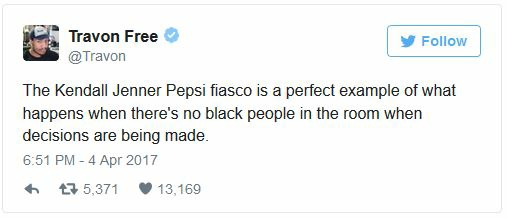 Tweeters criticize the simplification of complex issues, with one tweeting, "Can't believe Kendall Jenner just solved institutionalized racism and oppression by giving a cop a Pepsi. Groundbreaking."
Tweeters criticize the simplification of complex issues, with one tweeting, "Can't believe Kendall Jenner just solved institutionalized racism and oppression by giving a cop a Pepsi. Groundbreaking."
Pepsi is making no apologies: "This is a global ad that reflects people from different walks of life coming together in a spirit of harmony, and we think that's an important message to convey."
UPDATE: Pepsi decided to pull the ad and issued this statement: "Pepsi was trying to project a global message of unity, peace and understanding. Clearly we missed the mark, and we apologize. We did not intend to make light of any serious issue. We are removing the content and halting any further rollout. We also apologize for putting Kendall Jenner in this position."
Discussion:
- What's your reaction to the ad? What was Pepsi trying to do, and where did the ad fall short?
- Should Pepsi apologize? If so, what should the company say?
- Did the company do the right thing in pulling the ad? Why or why not?
Google Steps Up Ad Policies
 Google's Alphabet group is responding to criticism of offensive ads by tightening its ad policies. Last week, AT&T, Johnson & Johnson, and other companies, concerned about "brand safety," pulled ads from YouTube because they were appearing next to hate speech.
Google's Alphabet group is responding to criticism of offensive ads by tightening its ad policies. Last week, AT&T, Johnson & Johnson, and other companies, concerned about "brand safety," pulled ads from YouTube because they were appearing next to hate speech.
Bloomberg reports harsh words from industry leaders about Google and Facebook:
In a speech last week, Robert Thomson, Chief Executive Officer of News Corp., a frequent Google critic, said the two digital companies "have prospered mightily by peddling a flat earth philosophy that doesn't wish to distinguish between the fake and real because they make copious amounts of money from both."
Bloomberg also reports that Google has sophisticated artificial intelligence (AI) technology to fight "dangerous and derogatory" ads, but "[a]utomatically classifying entire videos, then flagging and filtering content is a more difficult, expensive research endeavor -- one that Google hasn't focused on much, until now." However, in the past two weeks, the company has flagged or disabled five times the number of videos than it had previously. Google Chief Business Officer Philipp Schindler is minimizing the issue, but he does admit it's a problem:
But it's five [times] on the smallest denominator you can imagine. Although it has historically it has been a very small, small problem. We can make it an even smaller, smaller, smaller problem.
These latest changes seem to be better received than ones introduced two weeks prior. At least after this announcement, no more advertisers have pulled ads-so far.
Discussion:
- Schindler's quote reminds me of former BP CEO Tony Hayward reference to the oil spill in the Gulf of Mexico as "tiny." Is this a fair comparison? What differences do you see in the two situations?
- Does Google's AI push give you more confidence in its ability to prevent offensive ads? Why or why not?
- Why didn't the company focus on this earlier, and why is it so actively working on this issue now?
Infographic Gets Panned on Twitter
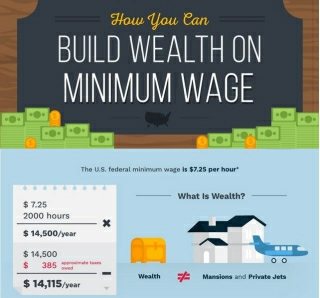 InvestmentZen, which encourages financial independence, created an infographic with advice for living on minimum wage, currently $7.25 per hour. Suggestions include selling your car, moving to a less expensive city, and recognizing that "a lot of the best things in life are free."
InvestmentZen, which encourages financial independence, created an infographic with advice for living on minimum wage, currently $7.25 per hour. Suggestions include selling your car, moving to a less expensive city, and recognizing that "a lot of the best things in life are free."
Reactions are generally not positive. Twitter users are taking offense at some of the advice, pointing out that, for example, not everyone has the flexibility to move across country. Part of the infographic identifies "excuses" for not moving, including "All of my friends and family live here." Sounds like a good reason to stay put to me, particularly for people living in poverty or close to it.
Others on the Twitter thread note the missing expenses of moving, doing laundry, and children should anyone choose to have them. An obvious logical flaw is in suggesting people sell their car, yet suggesting picking up some Uber shifts.
This reminds me (and others) of a 2013 McDonald's website with advice to employees, including getting a second job. To help employees manage expenses, the site showed a sample monthly budget with $25 for health insurance. McDonald's pulled the site and published this statement:
We have offered the McResource program to help our valued McDonald's employees with work and life guidance created by independent third party experts. A combination of factors has led us to re-evaluate, and we've directed the vendor to take down the website. Between links to irrelevant or outdated information, along with outside groups taking elements out of context, this created unwarranted scrutiny and inappropriate commentary. None of this helps our McDonald's team members. We'll continue to provide service to our folks through an internal telephone help line, which is how the majority of employees access the McResource services.
Discussion:
- Analyze the full infographic. What visual and organizational design principles from Chapter 9 in the text are used?
- What other logical flaws can you identify?
- Overall, do you find the advice useful, or does it enrage you as it does some Twitter users? Should InvestmentZen pull the infographic and issue a statement as McDonald's did in 2013?
Richard Branson's Letter About Virgin America
 Richard Branson wrote an open letter lamenting the end of Virgin America. Alaska Air Group purchased the company in 2016 and, only three months later, decided to retire the brand. An Alaska Air official said, "We are going to be able to create a real, strong, integrated airline for travelers on the West Coast." Brandon says, "It has a very different business model and sadly, it could not find a way to maintain its own brand and that of Virgin America."
Richard Branson wrote an open letter lamenting the end of Virgin America. Alaska Air Group purchased the company in 2016 and, only three months later, decided to retire the brand. An Alaska Air official said, "We are going to be able to create a real, strong, integrated airline for travelers on the West Coast." Brandon says, "It has a very different business model and sadly, it could not find a way to maintain its own brand and that of Virgin America."
Branson uses emotional language to describe the decision and the demise of Virgin Records:
With a lot of things in life, there is a point where we have to let go and appreciate the fact that we had this ride at all. Many years ago, I shed tears over selling my beloved Virgin Records for $1 billion, which we needed to fight off British Airways' Dirty Tricks campaign to try to put Virgin Atlantic out of business. Many tears are shed today, this time over Alaska Airlines' decision to buy and now retire Virgin America.
Branson compliments the airline's employees and customers and includes memories:
Every market was hard-won. The launch parties, the networking, the productivity on flights, the live concerts at 35,000 feet, the marriage proposals, the first in-flight wedding, the Oprah Skype to the plane!
As you might expect from a big personality like Branson, he ends the letter on a dramatic note:
George Harrison once said, "All Things Must Pass." This was the ride and love of a lifetime. I feel very lucky to have been on it with all of you. I'm told some people at Virgin America are calling today "the day the music died." It is a sad (and some would say baffling) day. But I'd like to assure them that the music never dies.
Discussion:
- Analyze Branson's letter. Who are the primary and secondary audiences? What are the communication objectives? What is the organizational strategy?
- Given your analysis, how well does the letter meet its objectives?
Ackman Apologizes for Valeant
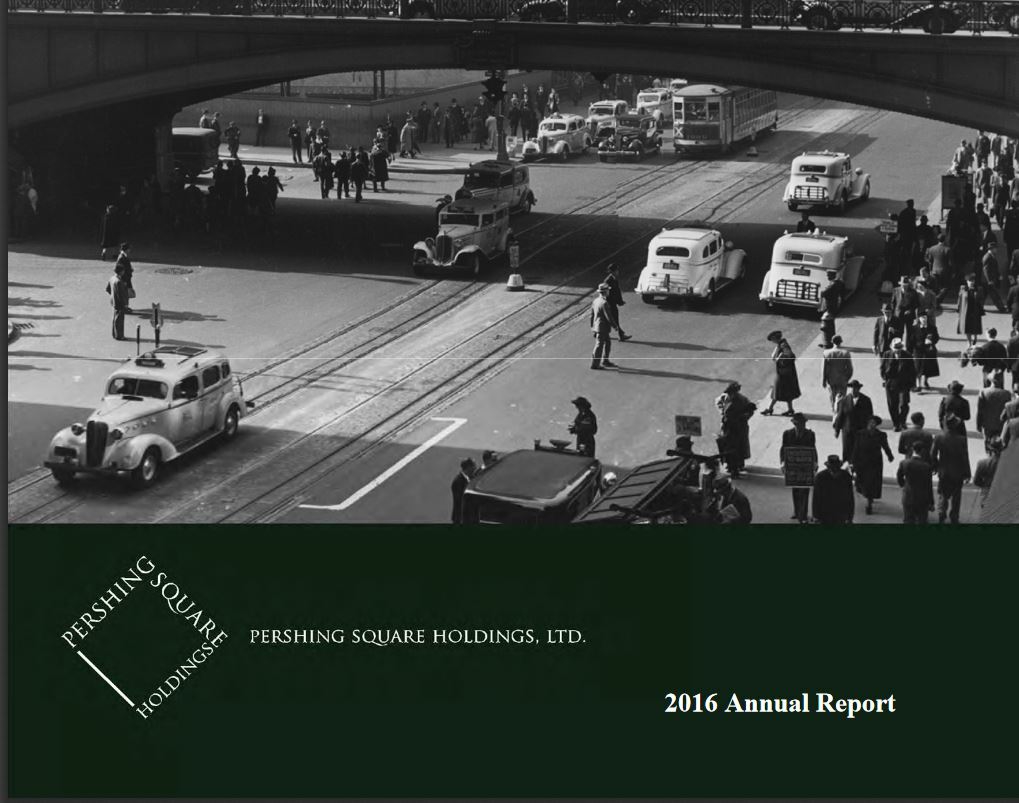 Activist investor and hedge fund manager William A. Ackman made a surprise apology for an investment in Valeant Pharmaceuticals that didn't turn out well. The New York Times reports on an annual letter sent to investors of the hedge fund, Pershing Square Capital Management:
Activist investor and hedge fund manager William A. Ackman made a surprise apology for an investment in Valeant Pharmaceuticals that didn't turn out well. The New York Times reports on an annual letter sent to investors of the hedge fund, Pershing Square Capital Management:
It is rare that William A. Ackman, the brash activist investor, apologizes for anything. As a successful hedge fund manager, Mr. Ackman has made billions of dollars for himself and his investors with bold and counterintuitive bets.
But this week he conceded that his firm's biggest wager yet - on Valeant Pharmaceuticals International - was "a huge mistake" that has cost his hedge fund firm, Pershing Square Capital Management, "a tremendous amount."
Valeant was in the news for drug price hikes, including a drug taken by AIDS patients that increased 5,500% in one day. The stock dropped from $257 in 2015 to $12.11, leaving Ackman's firm with a $4 billion loss.
Here are two significant quotations from the letter:
Clearly, our investment in Valeant was a huge mistake. The highly acquisitive nature of Valeant's business required flawless capital allocation and operational execution, and therefore, a larger than normal degree of reliance on management. In retrospect, we misjudged the prior management team and this contributed to our loss. We deeply regret this mistake, which has cost all of us a tremendous amount, and which has damaged the record of success of our firm.
"My approach to mistakes is that I personally assume 100 percent of the responsibility on behalf of the firm while sharing the credit for our success. While I and the rest of the Pershing Square team have suffered significant losses from this failed investment as we are collectively the largest investors in the funds, it is much more painful to lose our shareholders' money, and for this I deeply and profoundly apologize.
Discussion:
- Why do you think Ackman took this approach in his annual letter? Research the history of Valeant. Why didn't he apologize earlier?
- Read the entire letter. What is the context for the apology, and how well does it fit?
- What principles of an authentic apology, discussed in Chapter 7 of the book, does Ackman's apology demonstrate? Where does it fall short?
No, It's Not 'OK to Throw Rocks at Girls'
 Spicer Green Jewelers has apologized for a billboard that some think condones violence against women. The store in Asheville, NC, responded to the controversy in a TV interview and a social media post.
Spicer Green Jewelers has apologized for a billboard that some think condones violence against women. The store in Asheville, NC, responded to the controversy in a TV interview and a social media post.
In the interview, one of the owners said, "We are truly sorry that it offended anybody. That was certainly not our intention." Supporters on social media say the ad is funny and that others are over-reacting.
 In the Facebook post, the jewelers further explained the apology. A CNN article mentions that the company committed 10% of last week's sales to a local domestic violence organization.
In the Facebook post, the jewelers further explained the apology. A CNN article mentions that the company committed 10% of last week's sales to a local domestic violence organization.
Discussion:
- How well did the owners handle the situation in the TV interview and in the Facebook post?
- The decision to donate 10% of sales for a week seemed to come later. What's your view of this: a nice thing to do, an insignificant gesture, or something else?
Leggings Cause Trouble for United
Two teenage girls wearing leggings weren't allowed on a United Airlines flight. A passenger overheard the exchange, and you know the rest: cue the Twitter mob. Mentions of United went from an average of 2,000 to 174,000 (and no, it's still not true that "any publicity is good publicity"-in this case, 70% of the tweets were negative).
For some reason, celebrities got into the discussion too. Patricia Arquette, for example, tweeted, "@United. Leggings are business attire for 10 year olds [sic]. Their business is being children." (Isn't Arquette's business being an actress?)
What people didn't realize is that the girls were flying on free passes for family of United employees, and the company's policy includes a dress code for representatives of the airline. United explained the situation in a statement on its website.
Although American Airlines has a policy similar to United's, Delta asks passengers to use their "best judgment" when deciding what to wear. Delta took advantage of the situation with a sarcastic tweet.
Discussion:
- How well did United handle the situation? What points did the company emphasize in its statement?
- What's your view of Delta's tweet: clever, playful, schadenfroh (look it up), or something else?
Uber and Other Tech Companies' Diversity Stats
 After the scathing blog post about Uber's lack of diversity and issues with sexual harassment reporting, the company has published its diversity stats.
After the scathing blog post about Uber's lack of diversity and issues with sexual harassment reporting, the company has published its diversity stats.
Business Insider shows a series of bar charts comparing Uber's numbers to those of Facebook, Apple, Google, Twitter, and Microsoft. No companies are doing splendidly in terms of the percentage of women and people of color, but Uber is the least diverse in only one category: leadership. As the company reports, "Our leadership is more homogeneous than the rest of our employees. For example, no Black or Hispanic employees hold leadership positions in tech. This clearly has to change - a diversity of backgrounds and experience is important at every level."
 After additional criticism of CEO Travis Kalanick, he promises to take a more transparent approach: "This report is a first step in showing that diversity and inclusion is a priority at Uber. I know that we have been too slow in publishing our numbers - and that the best way to demonstrate our commitment to change is through transparency. And to make progress, it's important we measure what matters." Still, a Wall Street Journal article referred to Kalanick as "beleaguered": "Uber has said it is standing by its beleaguered founder." I wonder for how long that will continue.
After additional criticism of CEO Travis Kalanick, he promises to take a more transparent approach: "This report is a first step in showing that diversity and inclusion is a priority at Uber. I know that we have been too slow in publishing our numbers - and that the best way to demonstrate our commitment to change is through transparency. And to make progress, it's important we measure what matters." Still, a Wall Street Journal article referred to Kalanick as "beleaguered": "Uber has said it is standing by its beleaguered founder." I wonder for how long that will continue.
Discussion:
- Compare Uber to the other technology companies in Business Insider's charts. What conclusions do you draw?
- Compare Business Insider's bar charts to Uber's circle charts. Which work better and why? Why would each source choose the visual it did?
- How well does Uber explain its diversity position and goals on its website? What are the key messages you glean from this page?
Applicant Asks About Salary and Employer Cancels Interview

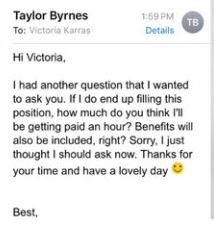 It was a tough lesson for Taylor Byrnes, looking for a menu developer position in Winnepeg. After a phone interview and before an in-person interview, she dared to ask her prospective employer, food delivery service SkipTheDishes, about wages and benefits. The company didn't appreciate the questions and cancelled the interview.
It was a tough lesson for Taylor Byrnes, looking for a menu developer position in Winnepeg. After a phone interview and before an in-person interview, she dared to ask her prospective employer, food delivery service SkipTheDishes, about wages and benefits. The company didn't appreciate the questions and cancelled the interview.
After the predictable outrage on Twitter, co-founder Joshua Simair said in a statement, "The email sent to Taylor was wrong and does not represent our team's approach or values," and "We are very disappointed in how it was handled. We do share a compensation package prior to hiring. As soon as we became aware of it on Monday, we reached out to Taylor to apologize for the email and reschedule her interview."
- Your thoughts? It typically is considered poor form to ask about salary on a first interview, but what about this situation? Did Byrnes behave badly? Did she make the situation worse with her posts on social media and therefore get what she deserved?
- How well did SkipTheDishes respond? Should they have done something else?
- Would you offer Byrnes the job if she's qualified? How easily can she and the HR staff get past this?








